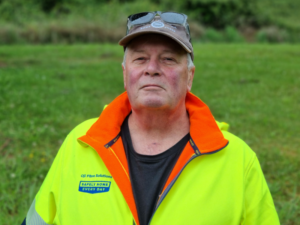It’s been a devastating year for manufacturing workers around the motu, with major closures gutting local economies and leaving thousands of skilled workers out of a job.
At Kinleith, the paper machines that once played a big part powering Tokoroa’s economy have fallen silent. After more than 70 years of continuous operation, Oji Fibre Solutions shut down paper production in June, making over 200 workers redundant and slashing even more contractor jobs.
At Winstone Pulp International, both the Karioi pulp mill and Tangiwai sawmill shut their doors, citing high energy costs and weak global demand. Around 230 workers were impacted. For a rural region like the central North Island, that’s a huge blow.
These aren’t isolated incidents, but symptoms of a deeper failure. The Government has no clear plan to protect the country’s manufacturing base. While other countries invest in green tech, domestic supply chains, and set proper industrial strategies, Aotearoa is letting decades of expertise and infrastructure slip away.
E tū has warned for years that without a proper plan for regional industry, we would see exactly this. These closures didn’t come out of nowhere. They were the result of long-term underinvestment, poor planning, and a lack of vision. Now workers are being told to fend for themselves while companies quietly walk away.
Ian Farrell, head delegate at Kinleith, says it’s had a real impact on the local community.

Ian Farrell
E tū head delegate at Kinleith
Photo: RNZ
“People are very disappointed. I think it could have been done differently and we could have saved the plant. Management and the Government go on about us being a world renowned manufacturing place, but the cost of producing paper was too much for the owners. “I think people are adapting and the town is surviving – it’s not going to die in the woods. You go into town and it’s still thriving. But some are still looking for jobs, some have no jobs, and if you stay living in Tokoroa you’ve got to have the right skill set. “Some people have had to leave because there just isn’t the work for their skill set. Others used to travel here from places like Cambridge and Rotorua. I haven’t caught up with all of them, but the ones I’ve spoken to are doing all right. Quite a few have picked up other jobs – driving for Fonterra or working at the dairy factories around here.”
Ian says that without addressing the problem of soaring electricity prices, he’s worried about the future of the pulp side of the operation, such as looking into different energy sources.
“They need to do something, and they need to do it in the next two years, so there’s some surety about the rest of the place staying open.
“What we should be doing is putting in a condensing boiler, so we can produce power and be cost neutral for energy. Kawerau survives because it’s got geothermal energy, and we could do something similar – run it off wood waste, for example. The Japanese owners don’t want to know about it, they think the Government should pay. I think the Government could go 50/50 with the company. You’re probably talking $50 million, which is nothing for them.”
It doesn’t have to be this way. Manufacturing is a critical part of a resilient, sustainable economy. It creates real value, keeps profits and taxes onshore, and provides decent, unionised jobs in the regions – but only if it’s protected.
